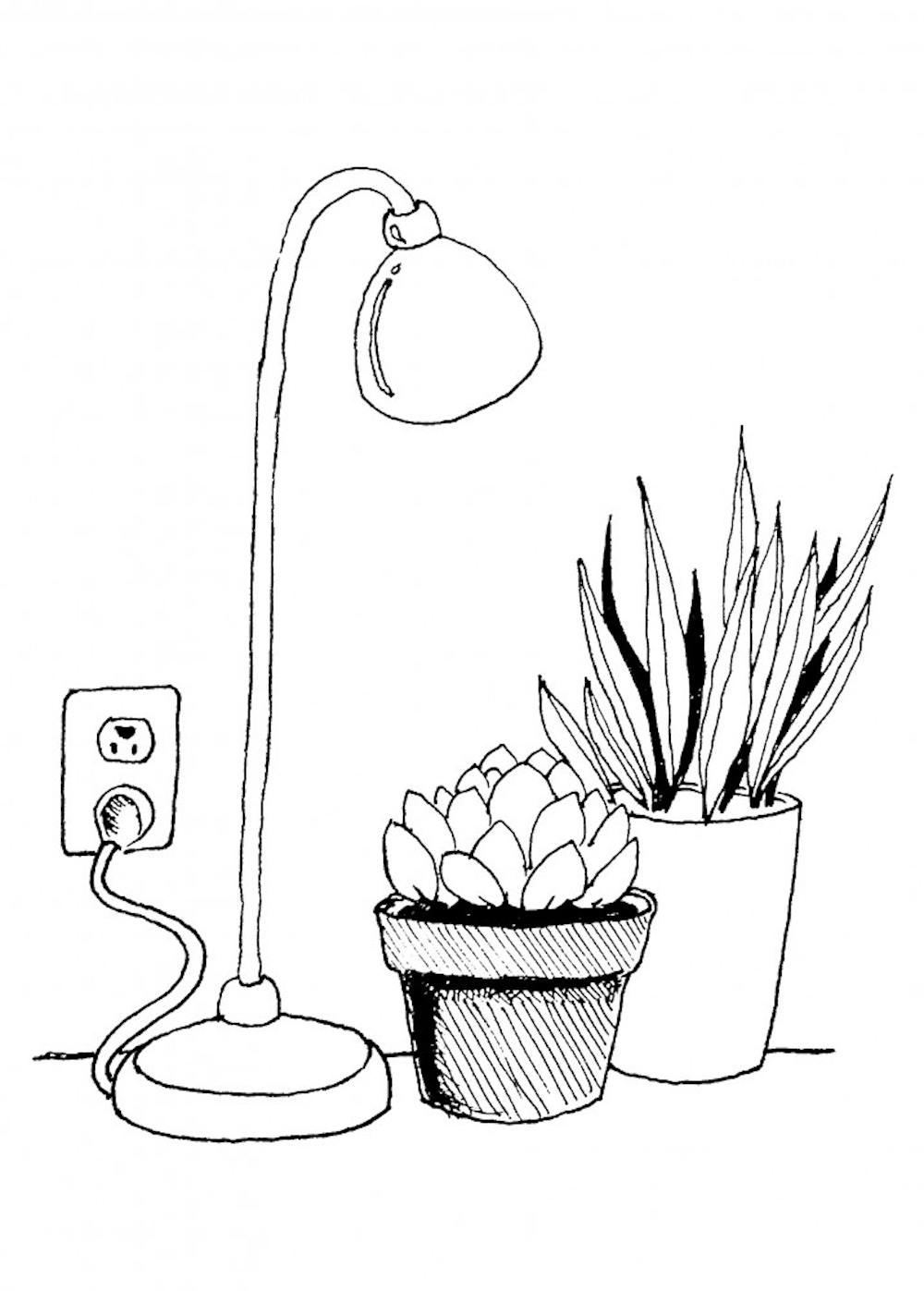Somewhere on the walk between stats class and my dorm room, I lost all self-control and began to cry. The misty air outside grew heavy with tears as everything around me faded from view. I struggled to catch my breath in between tears, hiccups, and debilitating fatigue.
For months, I had been silently fighting depression. No matter how much I slept, I was exhausted. I popped mints like drugs so that no one could smell the innumerable cups of coffee on my breath. No matter how hungry I was, I didn’t want to eat. I made sure to eat meals with friends, forcing myself to ingest nutrients. No matter how much I loved certain people, I loathed talking to them, and yet I dreaded being left alone because then I wouldn’t have to keep myself together for appearances’ sake. Dull nausea swelled in my stomach at the beginning of every unpredictable, uninvited crying fit, making going through the day unbearable, when the act of waking up itself began a day I usually didn’t want to start.

When I broke down, I finally acknowledged the guilt, inadequacy, and shame that had followed me for years. In a poisonously cliquey and competitive high school environment, I concentrated all of my energy on getting into college rather than psychologically dealing with the social rejection and shame I faced for four long years. In college, I battled with the consuming guilt of failing as a sister, friend, daughter, or girlfriend (depending on my relationship situation), in addition to managing a full course load and 10 to 15 hours of paid work a week. This was in addition to my perennial belief that I was not pretty, smart, or interesting enough, and that every guy I dated was “out of my league.”
Months went by when I tried to dissuade myself of my emotions, but I couldn’t live off vapid aphorisms like “happiness is a choice.” If happiness were as simple as a choice, I would just choose to not feel ashamed, guilty, and inadequate. I hadn’t chosen to cry that day; I had given in to everything I had been holding back for years. There have been days since when I’ve cried for four or five hours for no apparent reason other than feeling unbearably sad.
I’m not sharing my experiences because I crave pity or attention. Rather, I am telling my story because I am not the only one on campus battling feelings of worthlessness and despondency. Over one third of college students in 2014 claimed to have felt similar over the last 12 months — that is to say, one in every three people you see on campus might have difficulty getting up in the morning, not because they’re not morning people, but because, like me, they suffer from depression.
And every time I say the “d-word,” I feel pressured to give up my love and social life. The immense stigma around depression, counseling, and medication leaves people with the idea that those with depression are emotionally unstable or permanently sad. Chances are, though, that my situation will never affect my relationship with you. The few friends I told never saw the signs because there were none. I wasn’t about to announce to the world that I felt myself falling apart; I wasn’t about to tell you that I was in pain, mainly because I was too embarrassed for you to see me any differently than you already did.
Few will announce their depression to an audience because of the shame associated with any kind of special treatment. That doesn’t mean, however, that such individuals don’t seek empathy and compassion. When I tell you about my depression, I want you to know that I don’t want our friendship to change. I do, however, want you to know that I may need you to be there for me. You don’t have to treat me with kid gloves and you don’t have to censor your speech. You only have to worry that you’re treating me with compassion, just as you would anybody else.
I’ve started seeking help, and I’ve opened up about my struggle to a few trusted friends. But I also know that I am one of many: If what I’ve mentioned to you sounds like something you are going through, remember that you are not alone. If you can’t get out of bed anymore, if everything feels difficult, if you loathe loneliness because you’re afraid of its effects on you, tell someone you trust. Talk to Counseling and Psychological Services. Use Princeton Peer Nightline. There are resources for dealing with what you are going through, but I also know the stigma associated with using them. Admitting your pain to others — and yourself — is perhaps the hardest step of all. But your true friends will not treat you differently, and those who do simply lack the compassion to enjoy the depth of a person like you. And, most importantly, you yourself can only benefit from getting help.
My story is limited to my experience, and I cannot claim to speak for a community or for anyone else who is struggling with depression. That said, I can tell you about what I’ve gone through and what I have left to conquer. I can’t lie: There are still days when I can cry for hours and not want to eat. There are still days when I wonder what value my friends seen in me. There are days when the simplest things take every ounce of strength. But it is getting better. And in the meantime, I try to remind myself that it always does.

Leora Eisenberg is a sophomore from Eagan, Minn. She can be reached at leorae@princeton.edu.








